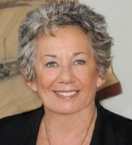As the concluding piece of the September series, this Wednesday’s editions focuses on managing the communications grid. Thanks to Susan Winer for “Talking Across Generations: Philanthropy as a communication tool.”
Philanthropy is not just a “good” thing to engage in. It is also one of the most effective tools for bridging generational differences in families. It provides a platform for establishing common ground and a means for perpetuating values. It is both a landscape that tolerates and encourages different perspectives and a context for deepening financial and business skills at any age. However, philanthropy is also the most under-examined portion of a wealth-holder’s financial portfolio. Research has shown that high net-worth individuals and families want advice on their philanthropic endeavors, but they often do not know to whom to turn—their attorney, their financial advisor, or the nonprofit they are supporting. As a result, whoever asks the right question takes the lead.
Initiating the Process
As one of your clients’ trusted advisors, you are in an excellent position to guide them to effective and rewarding giving, while maximizing tax benefits and creating a philanthropic legacy. Over the past several years, there has been a sea change in how philanthropy is practiced. For example:
- The rapid growth of Donor Advised Funds as an alternative to private foundations
- The increased interest in aligning investment portfolios with social or personal missions, and thereby helping to advance that mission significantly
- The globalization of giving
- The growing number of companies, not just publicly-held, but private and family-owned ones that have incorporated philanthropy into their business and marketing plans
- A heightened interest in sustainability, both economically and environmentally
- A deepening commitment to human and civil rights, globally and domestically
Many of the aforementioned changes can be attributed to the “coming of age” of millennials. This generation grew up on the internet and social media, and it is acutely aware of the issues and needs that plague communities and populations globally. They feel that these issues should be addressed now—not sometime in the future.
As has proven true throughout history, this generation brings a different perspective to virtually every aspect of life: how they as millenials choose and work with advisors, how they approach a job and career, and how they practice philanthropy. Understanding the motivations and the generational differences is critical to effectively responding to the interests and needs of a family that has multiple generations in place.
Philanthropy: A key to cross-generation communication
If you ask someone who is 70 years old to articulate his or her values or talk about the legacy he or she want to leave, and then ask the same question of someone who is 25 years old, you know to expect different kinds of answers. But this is not just a matter of age—it is about life experiences and generational values.
Gen Y (millennials) and Gen X are more concerned about the direct impact of their charitable dollars than their parents and grandparents. They are less interested in writing a check and more interested in hands-on involvement to effect change in their community or in the world.
So why are generational differences, and how they play out in philanthropy, of interest to advisors outside the philanthropic community? Recognizing the triggers to decisions and knowing how to involve and invest each generation in making these decisions can both improve professional relationships and bring families together around common interests. Just as important, it is the next generation that will be taking over businesses, determining the direction of financial investments; and they have different approaches to how they integrate work, families, money and philanthropy into their lives compared with prior generations. Bringing them into the conversation early, understanding what motivates them, and what engages them, contributes to building valuable and practical skills.
A good opener for this dialogue might be to initiate a discussion about the values that guide each generation’s life. Not only will this be enlightening but it also provides information that can shape subsequent conversations, not necessarily around philanthropy. An intergenerational rule of thumb is to think in terms of outcomes, not tactics. For example, you might ask:
- What are you seeking to accomplish with your philanthropy?
- What vehicles and tools do you want to employ to “invest” in the causes and organizations you care about?
- How do you define philanthropic impact and what would success look like to you?
The term “trusted advisor” cannot be taken lightly. High net-worth families want the counsel of their advisors to help guide decision making around philanthropic vehicles and opportunities. The value to you is that you build deeper relationships with the next generations of decision makers, and this can have a positive ripple effect across the entire spectrum of family interests.
About the contributor
 Susan Winer is co-founder and CEO of Strategic Philanthropy, Ltd., a global philanthropic advisory firm headquartered in Chicago. The firm works solely with high net worth and ultra-high net worth donors. Since 2000, Strategic Philanthropy, Ltd. has been at the forefront of helping individuals, families, closely-held and family-owned businesses plan, assess, and manage their charitable giving. She can be reached at susan@stratphilanthropy.com.
Susan Winer is co-founder and CEO of Strategic Philanthropy, Ltd., a global philanthropic advisory firm headquartered in Chicago. The firm works solely with high net worth and ultra-high net worth donors. Since 2000, Strategic Philanthropy, Ltd. has been at the forefront of helping individuals, families, closely-held and family-owned businesses plan, assess, and manage their charitable giving. She can be reached at susan@stratphilanthropy.com.





